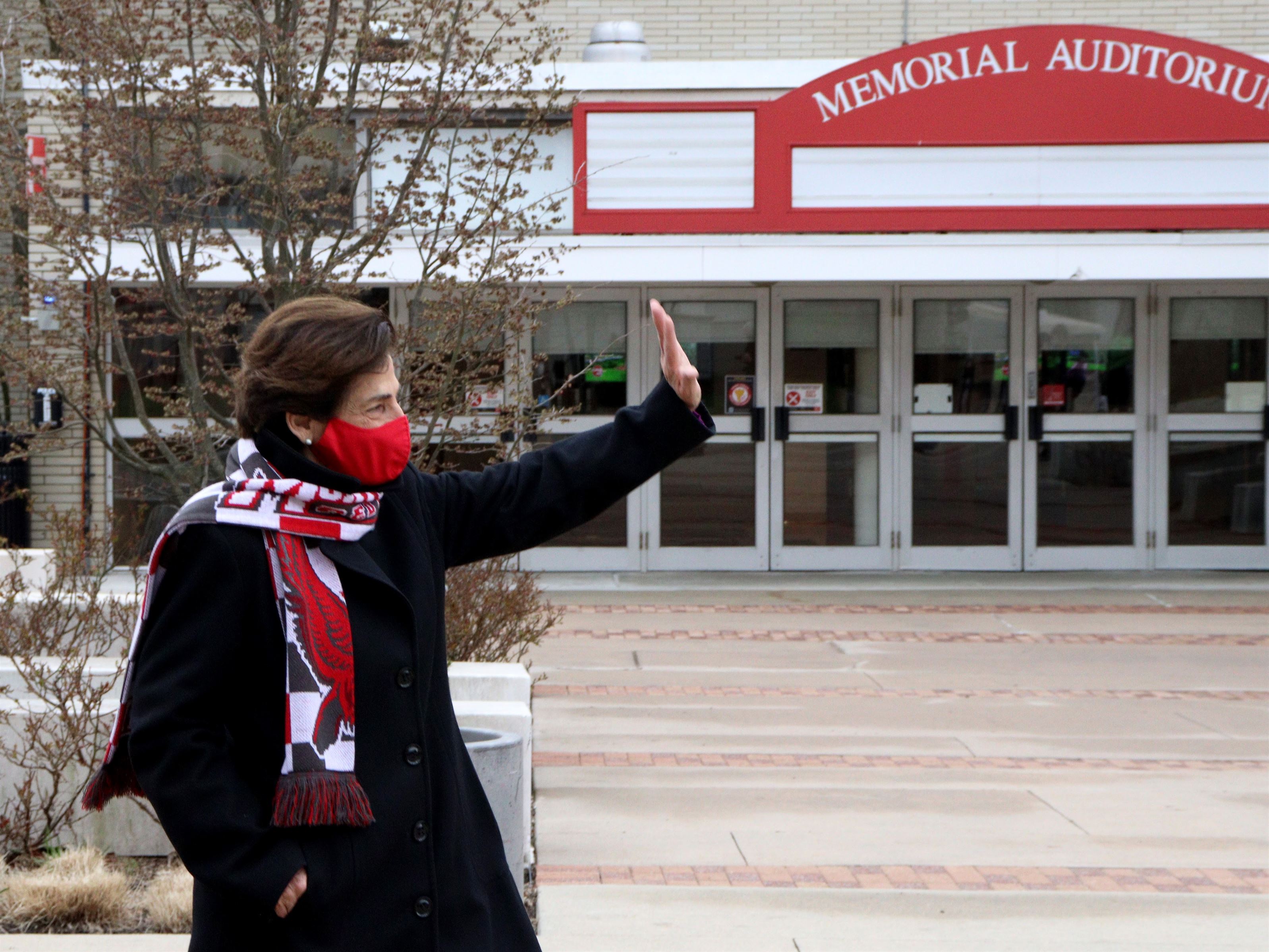During the first week in March, The Montclarion will be publishing content related to the two-year commemoration of the coronavirus (COVID-19) pandemic and the effect it has had on Montclair State University’s campus community #Since2020.
In her 23 years of leading Montclair State University, former president Susan A. Cole never imagined she would be faced with the enormity of the challenges brought on by the unprecedented nature of the coronavirus (COVID-19) pandemic.
Cole explains the big responsibility and the amount of work she encountered leading the university in a time of crisis.
“I can say categorically that I have never, at any time in my life, worked harder than I did throughout that time up to the day of my retirement on Aug. 1, 2021,” Cole said. “I was determined to do whatever was necessary to navigate the university successfully through the crisis for the sake of our students, present and future, and for the sake of the many people who, over the years, had committed their talents and energy to building this extraordinary university.”
For Montclair State and most of the world, COVID-19 arrived abruptly. It left us with no time to think. One day, our lives were what we now call “normal” and the next — chaos.
Cole also said that everything occurred so quickly the university did not have enough time to prepare and transition to remote learning.
“Looking back on events, it is hard to believe how little time we had to prepare,” Cole said. “Spring term classes began on Jan. 21, 2020, in the world as we knew it and the university’s classrooms, campus spaces and residence halls were filled to capacity. On March 16, Gov. [Phil] Murphy began to take a series of actions shutting down the state, including the public schools, and requiring that colleges and universities switch immediately to remote learning with only very limited exceptions.”
According to Cole, university presidents across the state went back and forth with the governor’s office regularly throughout the pandemic, especially when lockdown first began.
Although presidents like Cole agreed with the urgent measures needed to be enforced by higher education, Cole, amongst others, felt as though there was more to be considered.
“The governor’s office was, first and foremost, focused on the health risks to students posed by the virus,” Cole said. “I, and other presidents, believed that part of the equation needed to be the very serious other risks to students – the dangers of giving up on their educational goals, the social and mental health dangers of isolation from their peers and the health risks associated with being pushed back into communities with very high rates of COVID-19 infection, while the university environment remained quite safe.”
One of Cole’s wishes was for computer centers, libraries and residence halls to remain open on campus. She worried for the students who did not have adequate housing, study spaces or technology available to them.
Ultimately, universities statewide and the governor came to a compromise. However, as the pandemic intensified, Montclair State had to think of some long-term adjustments needed to operate immersive learning on remote platforms.
According to Cole, the pandemic brought the university an unexpected loss of approximately $41 million in revenues in 2020 caused by unanticipated expenses.
Some of these expenses were caused by the need for extensive information technology (IT) equipment, campus reconfigurations to meet health safety protocols, financial assistance to students who either themselves or family members lost employment and safety equipment for facilities, including COVID-19 testing and outdoor accommodations for the delivery of instruction, food services and other activities.
The COVID-19 pandemic forced Cole and Montclair State administrations to make quick, urgent decisions that had both positive and negative lasting impacts on the student and faculty population.
Looking back, Cole reflects on how the university’s decisions may serve as lessons learned.
“Living, if one stays awake for it, is learning,” Cole said. “So, while this university’s response to the pandemic was strong, successful and well-reasoned, having lived and learned through the experience, were there to be a next time, we would be able to make our decisions and plans with an even deeper understanding of all the issues and options and their consequences.”



